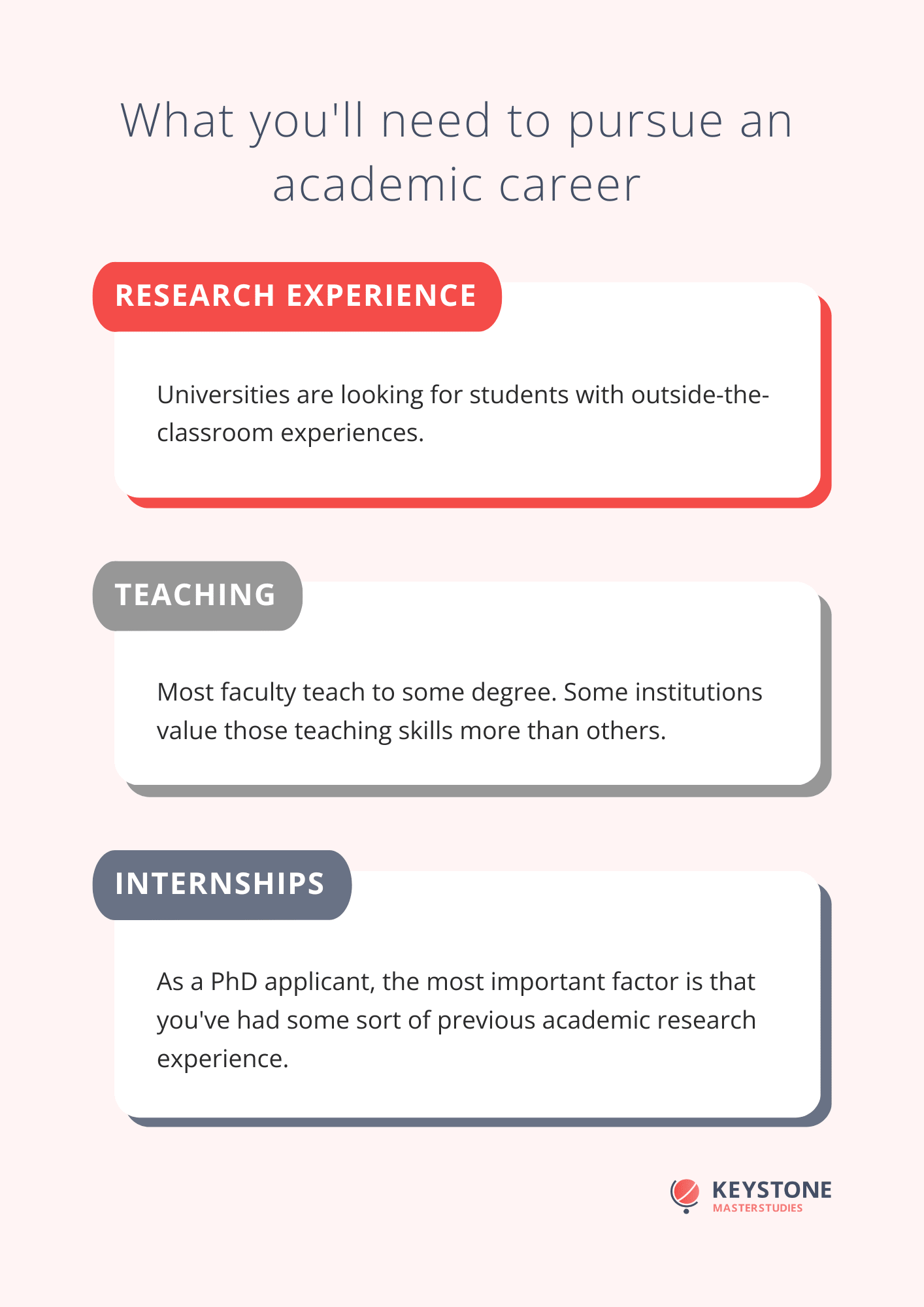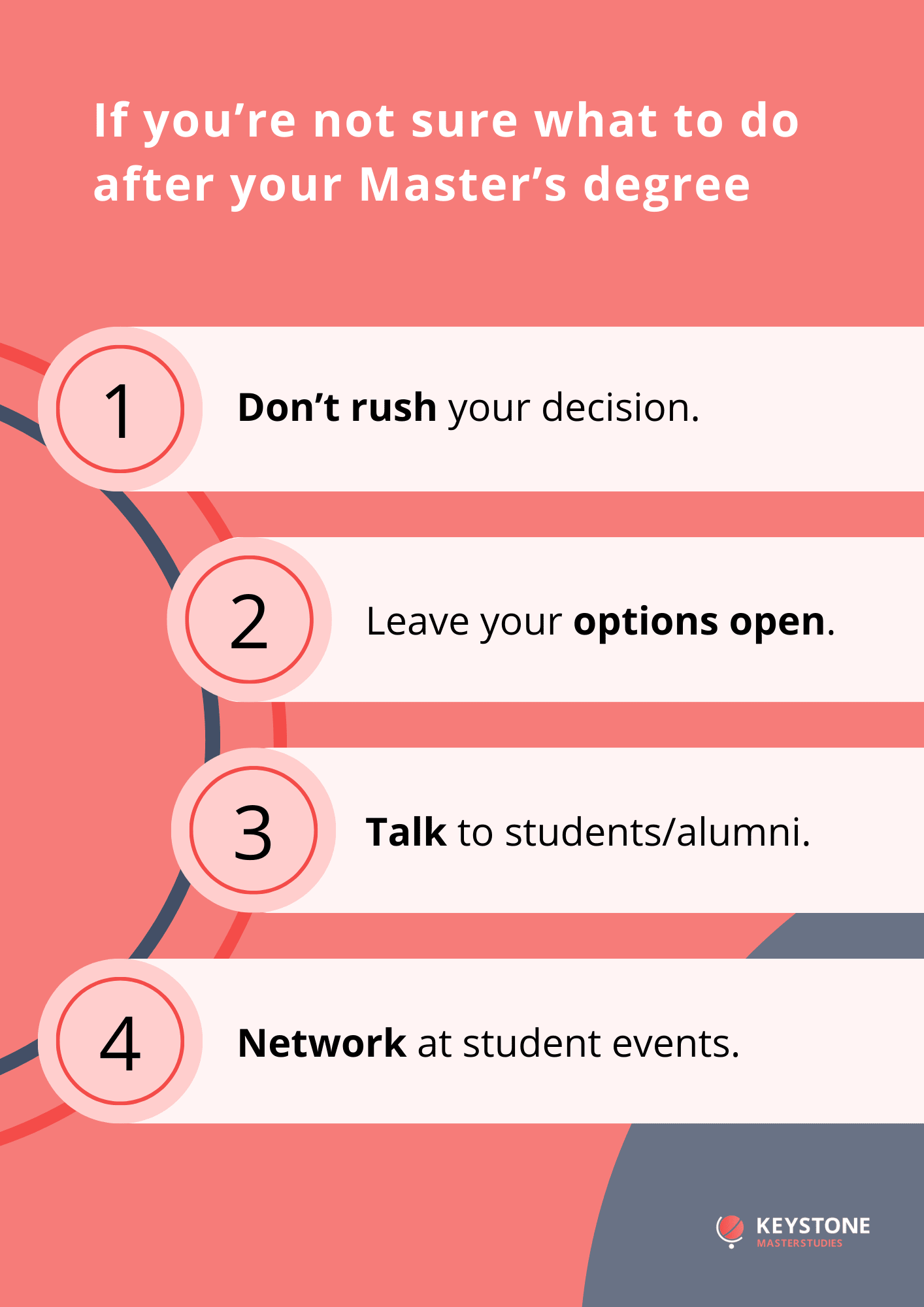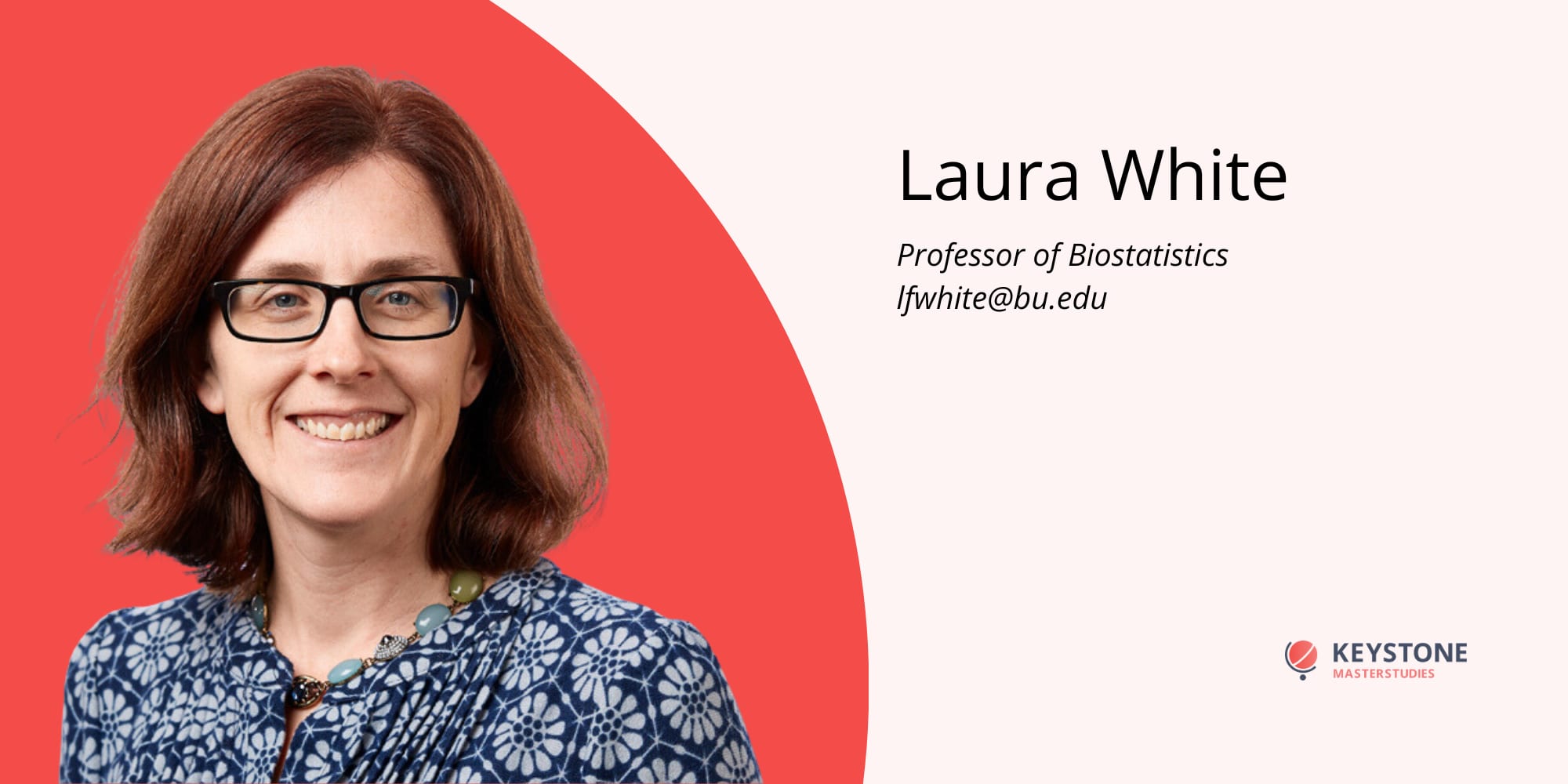What Comes After a Master's Degree? Explore Your Career Options
Should you stay in academia or pursue an industry job? We chatted with an industry expert to help you find out.
- Education
- Student Tips
- Study Abroad

✨ 5-second summary
- As a Master's graduate, there are generally more job opportunities in the industry as opposed to academia.
- You should get a PhD if you'd like to work as a professor or an academic researcher.
- For PhD applicants, it's important to showcase your previous experience in research and securing funding.
What comes after a Master's degree? Should you pursue a PhD and an academic path, or should you look for an industry job? Or maybe you're looking to advancing your education in order to open up your career opportunities?
We interviewed Prof. Laura Forsberg White, PhD, who works as a Professor of Biostatistics at Boston University, about the opportunities and common trajectories students pursue after a Master's. We've taken insights she shared and created this guide.
Academic path after a Master's
With a Master's degree, the types of jobs in academia you might find include roles such as a data analyst in research teams or working as a programmer. Typically, a PhD-level statistician manages and directs much of the work that someone with a Master’s degree does. That’s what the academic track looks like.
Many Master's graduates go on to pursue a PhD. This opens an opportunity to follow a professorial track, where you can engage in typical academic activities like teaching and research.
What you'll need to pursue a PhD (and an academic career in general)

1. Your research experience is crucial
According to prof. Laura White, as a PhD applicant, it's very important that you've had some sort of previous academic research experience.
This way the university will know that you've already gone through the research process and that you liked it – because some students go through a PhD program, reach the research portion, and realize they hate how it works, and don’t want to do it anymore. Therefore it’s nice to see if you've already been through it and that you want to do more of it.
Internships are also valuable, as they show that you've had some out-of-the-class experience, where you had to work and collaborate with others on projects.
2. Teaching experience is a bonus
Most faculty teach to some degree, but some institutions value teaching skills more than others.
Research is what brings money and prestige to universities. Some research institutions won’t care too much about how good you are at teaching as long as your research is going well.
That being said, teaching is still important for a lot of positions. Some faculty are better at teaching a classroom than at 1-1 mentoring, and others are better at leading individual students than working in a classroom setting.
Industry path after a Master's
Prof. White noted that a lot of Boston University students apply to graduate programs knowing that they’re going to work in the industry. There are more jobs, as well as more career advancement opportunities, for Master's students in the industry. They generally pay better too.
She also observed that there are students who choose to follow an academic path for a while to advance their knowledge and experience in a particular area, which then allows them to transition to an industry job they desire more easily.
It's worth noting that there are limited career opportunities in academia for Master’s-level graduates, but there are a lot more job and career paths for Master’s graduates in the industry.
Do students get a Master’s to progress their industry career?
According to Prof. White, many students apply for a Master’s straight from their Bachelor’s, in part because there are a lot better job opportunities for Master’s graduates.
But they also see students who completed their Bachelor’s, worked in the industry for a while, and now want to come back for additional education to break through career plateaus.
For U.S. students, Boston University students also have the opportunity to pursue Master's programs part-time, which allows them to work at the same time, and sometimes their companies pay for their degree.
Graduate jobs
People with a Master’s in mathematics can end up in a variety of fields and jobs, since companies often see them as easily trainable. Common fields are finance, data science, art direction, research, etc.
Humanities teach a lot of critical thinking and writing skills which can be applied to a variety of jobs and careers. Professor recalled examples of students who pursued history and religion, and ended up in management roles.
If you're not sure what to next

- Go slow. Don’t rush such an important decision.
- Be strategic. Try to look for opportunities that will keep other options open. Don’t pigeonhole yourself into a job that you’re not sure you’ll like. It’ll be easier to change jobs and careers if your experience can be transferred to other fields and roles.
- Reach out and talk to people. Most people are happy to talk about what they’ve done, give details about their careers and share any advice. Don’t be shy to reach out and ask for tips from people who’ve already experienced the paths you’re considering. This way you’re not only gaining more insight, but you’re also building your network, and the most effective way to land jobs is through networking.
đź’ˇ PRO TIP: How to network
One of the advantages of being in an academic program is that there’s already a network you can use. You just need to put yourself out there!
Participate in campus events, seminars, fairs and other similar opportunities as much as you can.
Here are some specific steps you can take:
- Challenge yourself to talking to at least 2 different people.
- Ask for their email address and follow up with an email.
Bonus tip: Prepare for conversations in advance
Step 1: Learn about the people you’ll be meeting:
- Who are they?
- What are they doing?
- Why do you want to talk to them?
Step 2: Write down at least 3 questions you want to ask them in advance.
Skills you should highlight if you want to change careers
🎓 Academia → 💼 Industry
Going from academia to the industry might be a bit more straightforward because there are a lot of easily transferrable skills that you learn in academia which translate well to industry job requirements. For example:
- Programming skills
- Different research methodologies
- Communication skills
- Writing protocols
💼 Industry → 🎓 Academia
Coming back from the industry to academia, it’ll largely depend on the type of job you were doing previously.
If it was an analyst or a research job, or something adjacent to that, then those types of skills translate very easily to an academic career.
At a PhD level, it’s a little trickier. If you’ve been in the industry and you want to go back to academia, you’ll have to think about your research portfolio:
- What kind of research are you leading?
- Are you publishing research?
The people that have successfully transitioned back into academia from the industry generally maintained a steady stream of research even while working the industry job.
For scientific fields in the U.S., people who want to come back to academia need to have been publishing and self-funding experience. In other words, they should have proven experience of being able to go out there and secure funding to support their research. This is a skillset that most universities see fondly, and it’s great for the research portfolio of the university.
If you want to work in the industry but are also considering going back to academia at some point in your life, you should maintain your ties with academia regardless of your industry job – this ensures that your research will be relevant even when you come back to the academic world.
About Laura White

We had the pleasure of chatting about Master's graduate career paths with , PhD, who is a Professor of Biostatistics at .
Her work involves the development of novel methodologies for the detection of disease outbreaks, as well as the application of statistical methods for public health surveillance systems.
About Boston University Graduate School of Arts and Sciences
Founded in 1874 as the School of All Sciences, Graduate School of Arts & Sciences is Boston University’s largest academic division, the heart of a world-class research university. The faculty of the Graduate School of Arts & Sciences is among the world’s most respected professors, researchers, and professionals in their disciplines.
Interested in learning more about Boston University Graduate School of Arts and Sciences and their programs?

Sara Evans
Author
Sara is the Content Manager at 51łÔąĎÍř Education Group, in charge of creating and managing editorial content for students across the globe. After getting a Bachelor's in Interactive Media Design, she pursued a career in Content and UX. She's been involved in the international education industry since her high school years.
Find a program in these categories



